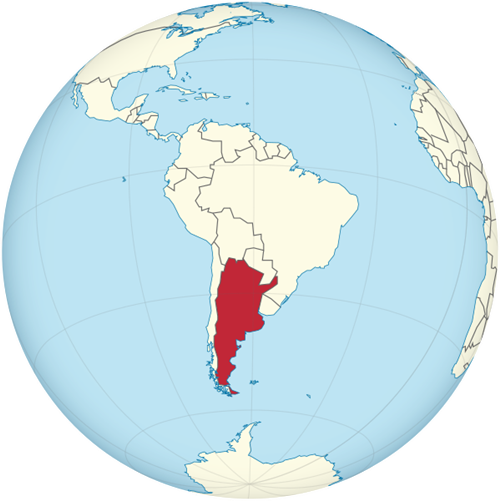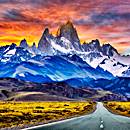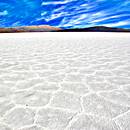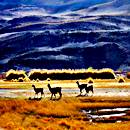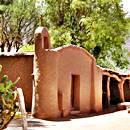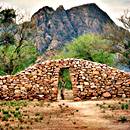Avice on travel to Argentina
Argentina: Facts & useful information
Visiting Argentina whether to enjoy its fantastic natural scenery at Iguazú Falls, Ushuaia in Tierra del Fuego or drive Ruta 40 to visit its sights (Salta, Mendoza, the Salinas Grandes and Patagonia: Bariloche, the Seven Lakes Road and the Perito Moreno Glacier), is a wonderful experience.
This page will give you a quick summary of the country and useful tips and information for your visit.
Travel to Argentina
Country Summary
Things to know before you come to the Argentina
There are some things that you must arrange before leaving home which will ensure you a smooth trip:
Passports
Check its expiration date, you must need a valid passport to travel to Argentina, if it will expire less than 6 months after your departure date from Argentina you will need to renew it. Remember that it may take some time to renew your passport. Give yourself time.
Visit the Argentine government VISA website, to learn all about your visa requirements for Argentina.
Reservations and Bookings
If you are traveling during peak season, make sure you book your flights and hotel rooms and also Rent your car.
Credit and Debit Cards
Call your credit-card companies and your Bank to let them know that you will be traveling abroad. Get the emergency phone numbers so that you can call them in case of loss or theft or any other problem.
Get the PIN code for your cards, you will need it to draw local cash from ATMs overseas.
Mobile Phone
When you travel to Argentina should check with their mobile phone companies the applicable roaming charges, to avoid surprising
As a cost saving measure, when travelling abroad, turn off mobile data, 3G or 4G and roaming, and even put your cell phone in airplane mode.
You can use available Wi-Fi options in your hotel, or in public areas such as bars, cafes, restaurants. Be aware that open networks are not safe.
Travel Insurance
Do not travel abroad without travel insurance; it is fundamental because it minimizes the financial risks involved in mishaps that may occur while traveling abroad: accidents, illness, emergency evacuation, death, missed flights, lost or damaged luggage, theft, legal costs, damage to third parties and more.
Also check what coverage your existing insurance policy offers, and the extra coverage provided by your credit cards.
Rembember this: do not go overseas without Travel Insurance.
Documents
Print some copies of your important travel documents (tickets, hotel bookings), jot down your credit card numbers and their emergency phone numbers. Photocopy your passport. Copies will be very useful if you need to get new ones issued.
Bring your driving license with you for your road trip.
Before Leaving, a To Do List
Write down your itinerary with dates and locations. Give a copy to friends or family so that they can get in touch with you in case of an emergency.
Your home: arrange for the bills to be paid, your mail picked up or placed on hold. Cancel your newspaper or have someone pick it up.
Pets will need to be taken care of. Will they stay at home with a sitter? or will you board them somewhere else?
Health
If you have a health condition (heart, diabetes, asthma, etc.), check with your doctor before you travel.
Prepare a brief medical history and carry it with you: your doctor's contact information, your allergies, blood type, prescription medications, etc.
Check that you have the required health immunizations.
Get medical insurance that covers emergency evacuation for medical care. Carry the contact details of your insurance with you.
Ask your doctor to issue prescriptions for the medications that you may need during your whole trip, you may not be able to buy them in Argentina. Carry the essential medications in your carry-on luggage.
Keep your medicine in its original packaging, you may need a letter from your MD explaining the need for certain medicines.
Visit your dentist before traveling.
Packing Tips
Carry your valuables and medicine with you in your carry on luggage. Do not pack them in the check-in baggage during your flight.
If you forget something at home, don't worry, you can always buy it in Argentina.
Leave this at home
When you travel there is always the risk of luggage loss. So don't bring irreplaceable items with you, and definitively leave all prohibited articles at home:
- Expensive jewelry and irreplaceable family objects
- Unnecessary cards and papers that usually fill your wallet (travel light).
- Credit cards that you won't used during the trip.
- Prohibited or forbidden articles such as seeds, plants, fruit, beef, weapons, etc.
During your Flight
Try to avoid alcoholic drinks and coffee as they tend to dehydrate you.
Planes have a very dry cabin environment so keep hydrated; drink plenty of water.
Try to sleep and readjust to the local time when you arrive.
Follow the on board exercise programs to keep blood clotting in your legs to a minimum. Walk about, stretch.
Once you Arrive
Try to Adapt to local time upon arrival to avoid jet lag.
Don't touch wild animals or street dogs, they could bite you and have plague or rabies.
Use sunscreen and insect repellant.
Wash your hands frequently.
Keep healthy habits: eat fruit, whole grains, nuts, veggies. Sleep well. Do not skip breakfast. Stop along the way to relax and unwind. Walk whenever you can.
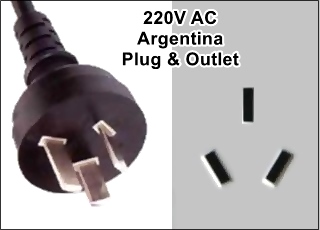
- Language: Argentine Spanish
- Time : GMT + 3
- Electricity: AC 220 V 50 hz
- Population: 46 million
- Surface area: 2.791.810 km2 - 1.070.000 sq. mi
Argentine Currency
Cash is king in Argentina, most transactions are done in "Efectivo" (cash payment), and you can even get a 10% discount with cash versus credit or debit card payment, so ask if there is a rebate for cash payment before paying.
Always carry cash on you (taxis and most small stores only accept cash).
Argentina's legal currency is the Argentine PESO and its local symbol is $.
There some coins in circulation, but mostly not used. Banknotes. Therea are 10, 20, 50, 100, 200, 500, 1,000, 2,000, 10,000 and 20,000 peso bills circulating in different issues with different series.
Currency Exchange
You can change foreging currency (U.S. Dollar, Brazilian Real, Euro, British Pounds) at the Banco de la Nación Argentina at Buenos Aires' Ezeiza International Airport (during Bank hours). Bureau de Change are found in most tourist destinations (usually open from 10 AM to 4 PM). You can usually change currency at important hotels -as a guest. Some stores may accept foreign currency but usually the exchange rate is not the best.
Small towns and villages may not have Bureau de Change, try a bank, they usually change currency.
When traveling in the interior of the country, play it safe and always carry pesos in your wallet.
Credit cards are widely accepted (Visa, Master Card, American Express) everywhere though sometimes a minimum purchase value is required.
Banks
They are open 10 AM to 3 PM Mon to Fri.
All major cities have several banks. Even the small towns will have at least one bank. The Federal Government's bank, the Banco de la Nación Argentinais the most widespread bank, and nearly all towns have an office of the Banco Nación (as it is called locally).
There are two networks of ATMs, "Banelco" and "Link", most foreign debit cards work well with the Banelco network. Bear in mind that they don't expend dollars, and the fee for their use can be quite high. On weekends (specially long weekends) and the first days of the month they can run out of cash.
Be careful at ATMs, don't let anyone see your pin, keep an eye out for skimmers (machines that are tampered with to read your data). Put your cash and card away immediately, count money later at your hotel. If you see anything suspicioius cacancel your transaction and leave immediately.
Taxes
There is only one tax levied on sales: VAT, Value Added Tax, which is called: IVA Impuesto al
valor agregado.
IVA's rate is mostly 21%. All prices displayed already include the IVA.
Prices on restaurant menus, taxi and bus fares, and all other goods that are on sale already include IVA. There are no other sales taxes.
Some hotels may charge a "Tourist fee" levied by the local municipality (Iguazu and Bariloche are two examples of this).
Shopping Hours
Stores and shops usually open around 9 or 10 AM and remain open until 7:30 PM. Small towns in the interior close for "Siesta" from midday to 3 or even 5 PM but remain open until later. Shops in Shopping Malls and most Supermarkets are open until 10:00 PM.
Getting Around Buenos Aires
When you Arrive at Buenos Aires, never (NEVER) take a taxi that is offered to you by someone in the airport's hall. It is not safe.
Proceed to the counters that are in the hall, just after you exit customs (such as "Manuel Tienda Leon" and book a car or "remis" or a shuttle bus to downtown Buenos Aires. Uber is another option, but you may have to pay cash -so add it under the payment options.
Flag the black and yellow taxies in the streets of Buenos Aires to move around the city or take the subway, suburban trains or buses using the "SUBE" card. You can also take the Buenos Aires subway using your contactless Visa or Mastercard.
SUBE cards can be purchased at most "kioscos" (convenience stores) visit their website to find out where you can buy one. Load it with say $300 and travel. You can reload them at ticket sales points in the underground and train stations.
Safety
Argentina is, by South American standards, a very safe country (so are Chile and Uruguay).
Buenos Aires city is very safe, you should always exercise caution and avoid slums or places that do not seem safe.
Some areas of the Greater Buenos Aires metropolitan area should be avoided.
Keep an eye on your wallet and personal belonging as you would in any major city in the world. There are always pick-pockets. Carry your backpack on your front as most locals do.
Call 911 in case of an emergency.
The interior of the country is even safer than Buenos Aires city.
Driving
Traffic can be pretty hectic in Argentina: there is a high accident rate and most drivers do not respect the universally accepted driving rules such as: Right of way, priority on roundabouts, signaling lane changes, maximum speed limits, traffic lights -yes they will drive through red lights, stop signals, etc. are quite often not respected.
Drive Safely
The best option for a foreign driver is to keep your eyes wide open, and drive defensively!.
Low-beam headlights are required to be on at all times on highways and seat belts must be worn at all times.
Speed limits: on streets is 40 km ⁄ h, on avenues is 60 km ⁄ hour (some are 50 though), on highways 100 km ⁄ hour, on motorways - toll or freeways, it is 130 km ⁄ h.
There are photo radars for speeding on highways (the sign "fiscalización electrónica" preceeds these spots), Waze should also tell you where they are.
Tolls
Expressways and most main highways have tolls (not Ruta 40). And unless you have a tag to drive through the automatic lane, you have to pay cash at the booth.
Learn all about driving in Argentina, visit our > >
Car Rental webpage
General Tips
Health:
Take out medical insurance as you would normally do on any trip abroad.
Argentina has excellent doctors and public medical system: Public hospitals are free, but can be crowded.
Pharmacies
They are open during shop hours, but in every town, there are several which are open 24 hours a day, every day of the week.
Most drugs (including antibiotics) can be purchsed over the counter without a medical prescription and if you know the active ingredients, the pharmacist can provide you with the local equivalent to the medicine that you are used to: i.e. acyclovir.
Drinking Water
Tap water is safe in all main cities. Mineral water is always available and all brands are good. You can buy it nearly anywhere (drugstores are open 24/7 in most places).
Diseases
Get a Yellow fever shot if traveling to Misiones or Corrientes provinces (i.e. visiting Iguazu or Esteros del Iberá).
As in most of South America be aware of mosquitoes which can transmit Dengue. Use a repellent. There is no Mmalaria.
Trypanosomiasis, American (Chagas Disease)is very rare in travelers and is only a concer if you lodge in poor-quality housing in endemic areas.
Food & meals
In Argentina you can eat the most varied meals:
- Beef. Argentina is renown for its beef. Beef is available everywhere, from the lowliest bar to
the haute cuisine restaurant.
Bife de Chorizo, sirloin, steaks and more. Mostly grilled, and with "papas fritas" (chips - french fries), mashed potatoes, saldads as a side plate. - Italian food. More than half the argentine population is of italian descent so italian food is part of our culture:
Pastas : gnochi, ravioli, lasagna, spaghetti, penne, and more. Found, just like beef, at all eating places.
Pizza: of all kinds and sizes. Sold in Pizzerías
Espresso: great coffee, called simply café, it is available at nearly all eating spots and bars. - International cuisine. Chicken, Cjhinese food, fast food (Mac Donalds, Burger King, etc.), Spanish food, and other ethnic foods can be found in all big cities.
- Wine. Argentina is one of the five largest producers of wine in the world (bigger than Chile), and
its per capita intake is amongst the highest in the world.
You will always be able to find good quality red (Malbec, Cabernet Sauvignon) or white wines at any restaurant or bar. Legal age for drinking alcoholic beverages is 18 years.
Eating hours:
Lunch: From around 12 midday till 4 PM you will be able to find restaurants serving lunch.
Dinner: We tend to be late eaters, so don't expect to eat supper before 9 PM (earliest), most places get full around 10:30 PM and remain open till after midnight.
Tipping
Tip hotel bellboys, or anyone who carries your luggage, room service, and waiters at restaurants expect a tip if the service that they have given was up to your expectations. If it was not, do not hesitate in saying so and don't give a tip.
Who not to tip: Taxi drivers, unsolicited services.
How much? In restaurants the usual tip is 10 percent of the check. In theory you can add it to the check, but the common practice is to pay tips in cash.
More questions? Doubts?
E-mail your question, we will be happy to answer you.
Hotels & Accommodation along Ruta 40
Find your room in each province along the highway
Find Lodging
>> Hotels in City of Salta
Hotels in each province along Ruta 40
Must-See stops near Ruta 40
>> Find your room in Salta Province

